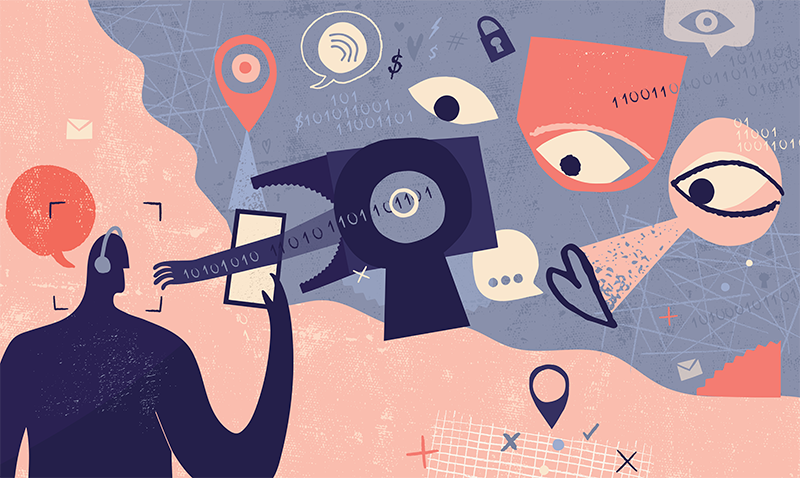As Technology Rises, Does Our Happiness Fall?
Staying healthy while navigating the digital age

With technology growing at an incredible pace, it seems like overall happiness is declining. Let's not mistake this, though—the rise of technology has positively transformed our lives, changing how we work, communicate, and even how we think. It's led to amazing efficiency, but the question remains: are we making the most of what it offers us?
Despite the countless benefits of technological advancements, concerns about its impact on our health are growing. Being a millennial myself, this trend likely began in AOL chatrooms where I, and probably many others, spent countless hours pretending to be something we were not.
Ultimately, living too much online is disruptive for work and for life.
Connectivity, oversaturation and stress
The digital age, while granting us access to seemingly unlimited information and unfathomable connectivity, has also plunged us into a state of constant stimulation and distraction. We're bombarded with notifications, emails, and messages, feeling the need to always be 'plugged in'.
This constant barrage is proven to lead to stress, anxiety, a feeling of being undervalued, and even a dependence on our devices which often double as our workspaces. With all this advanced technology, we've become incredibly productive, but it seems like the extra time we gain is just filled with more work.
What even is a weekend anymore? I check my messages daily, thinking that handling work on a Saturday will lighten my Monday load, but inevitably, something else just takes its place. I’ll admit it, I'm addicted to my phone.
Social media and mental health
Particularly concerning is the impact of social media on mental health and well-being. If you recall my blog from last year, "Can't we all get along?", I explored how excessive use of social media can lead to feelings of isolation, anxiety, and depression. The constant pressure to present a perfect online image and the endless cycle of comparisons can chip away at our self-esteem.
I was struck by the 2020 Netflix documentary "The Social Dilemma," which revealed that the very creators of today's popular platforms restrict their children's use of them. Social media has altered traditional interactions, reducing face-to-face communication and consequently diluting the quality of our relationships. We might have hundreds of "friends," but our connections are weaker. Just because we wish someone a happy birthday or congratulate them online, it doesn't mean we're genuinely engaged.
Overdependence on tech, and setting boundaries
Overall, our dependence on technology has made us less active, many of us spending more and more time glued to screens. We’ve long known a lack of physical activity can lead to obesity, diabetes, and heart disease, all of which negatively impact our well-being. Mindless scrolling can make us feel, well, mindless. Interestingly, boredom often sparks creativity because our minds aren't built to stay idle. Even when we sleep, our brains stay busy. It’s OK to be bored—in fact it might be good for us.
The key is to be aware of the impact of technology and set boundaries before it morphs us into something unrecognizable. Limit your social media use, disconnect during meals and social interactions, and make time for physical activity and outdoor experiences. Focus on nurturing meaningful relationships—these actions can all contribute to improving our overall happiness and well-being.
Always know there are resources available if you’re struggling with mental health and that you’re not alone. Last year the National Suicide Prevention Line changed its number to a simple one to recall, 988. So, even though technology has given us a myriad of benefits, we need to stay mindful of its potential downsides. By setting boundaries and using technology consciously, we can reduce its negative effects while maximizing the positives.

